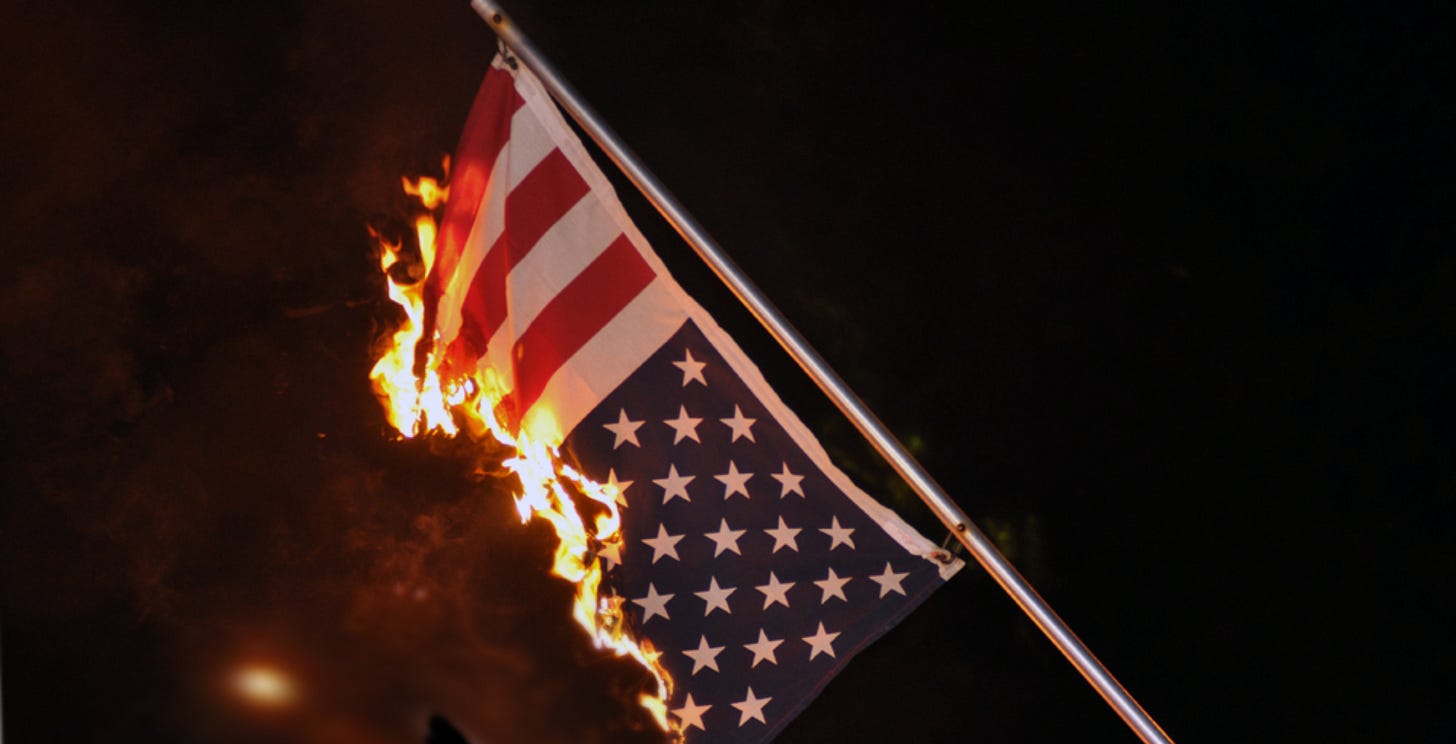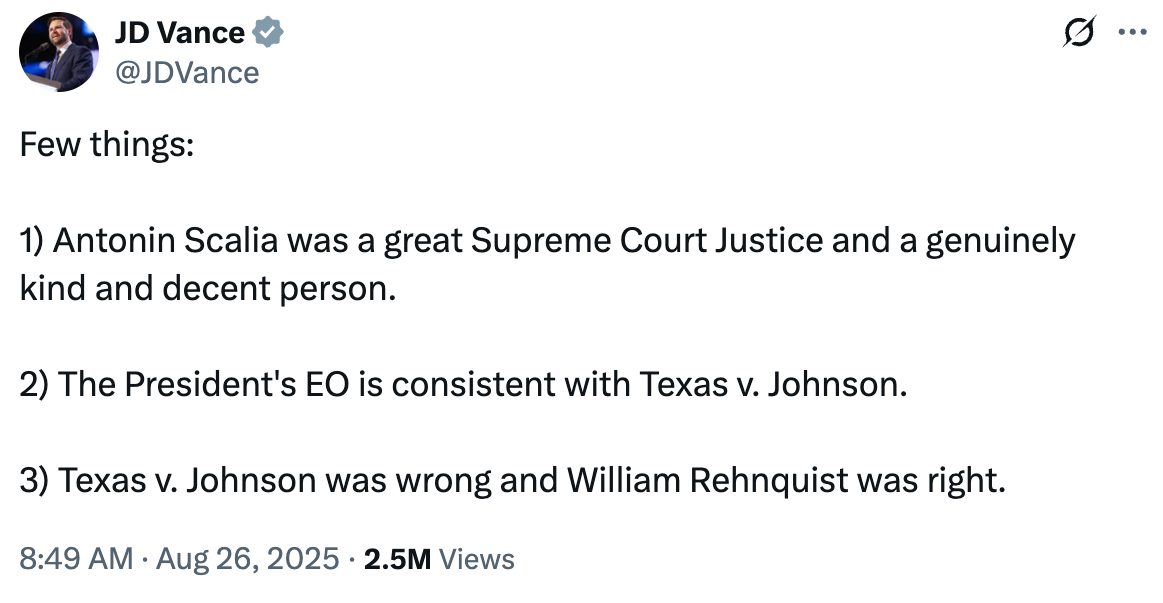Burning Flags
Whether burning American flags constitutes protected speech under the First Amendment is irrelevant; it's protected by the Ninth and Tenth amendments regardless

Understanding the United States Constitution is not really a difficult task, but it is made so by scholars and politicians who want to expand upon the very limited set of powers granted to the U.S. government by the Constitution. For example, the plain text of the 2nd Amendment is only difficult to understand or only requires reading between the lines to people who want to ignore what it says so that the U.S. government can limit what weapons American citizens can own or carry without going through the difficult process of amending the Constitution. Likewise the question of whether American citizens have the right to burn the American flag.
President Trump signed an executive order yesterday supposedly making it a crime to burn the flag of the United States, but that’s not exactly what it does. What it actually does is create a new emphasis on crimes that involve burning an American flag, such as inciting a riot or theft. The Supreme Court case Texas v. Johnson (1989) states that burning the American flag in and of itself is an act of protected symbolic speech under the First Amendment to the Constitution, which would make Trump trying to ban it outright a direct violation of the Supreme Court’s ruling. Vice President J.D. Vance has argued, however, that the court got the decision wrong and that Chief Justice William Rehnquist’s dissent was correct where he argued that burning the flag was a uniquely bad form of expression, that can lead to other bad outcomes, and an exception should be made not to have it protected under the Constitution.

I would argue that Vance is wrong, and that Texas v. Johnson is irrelevant. Whether or not burning the American flag constitutes protected symbolic speech under the First Amendment, or whether it is so uniquely bad that it is a form of expression that should not be protected by the Constitution is making the Constitution more convoluted than it really is. There are two amendments to the Constitution which make clear how the Constitution is to be interpreted, and these are the Ninth and Tenth amendments in the Bill of Rights.
The enumeration in the Constitution, of certain rights, shall not be construed to deny or disparage others retained by the people.
Ninth Amendment
The Ninth Amendment here states that simply because, say, the First Amendment explicitly declares certain rights to be protected, such as the freedom of speech, it does not imply that other rights not explicitly declared to be protected are not also protected, but, rather, that any rights not explicitly declared to be outlawed by the Constitution are retained by the people. Therefore, since burning the American flag is not declared to be a crime by the Constitution, it is a right retained by the American people per the Ninth Amendment. Whether burning the American flag is protected speech under the First Amendment is irrelevant because it is protected in its own right by the Ninth Amendment.
The powers not delegated to the United States by the Constitution, nor prohibited by it to the States, are reserved to the States respectively, or to the people.
Tenth Amendment
The Tenth Amendment explains that there are no assumed powers of the United States government within the U.S. Constitution, but that the powers granted to the U.S. government are limited only to those powers explicitly stated within the Constitution. Anything else is either reserved to the various State governments or to the American people individually. Since the Constitution does not grant the U.S. government the power to ban burning the American flag, the U.S. government, including the president, has no power to ban burning the American flag.
Leaving aside the fact that President Trump’s Executive Order does not actually ban burning the American flag in and of itself, the question of whether burning the American flag ought to be protected or not, as decided in Texas v. Johnson, is irrelevant: Burning the American flag is protected per the Ninth and Tenth amendments to the Constitution and if people believe that burning the American flag ought to be illegal then an amendment to the Constitution would need to be ratified making it so. There is no clause for making exceptions based on any criteria despite the argument made by Chief Justice William Rehnquist in 1989 and endorsed by Vice President Vance. As I said, the U.S. Constitution is a relatively simple document to read and understand, and the only reason to pretend otherwise is because someone wants the Constitution to be ignored to enact their favored policies. Ignoring the Constitution is why the federal government established by the Constitution has not existed for a century at least in favor of the imperial government we have today with no limits to its power. There is no going back, but it doesn’t mean that we shouldn’t point out when elected officials are advocating violating their oaths to the Constitution whenever we can.


